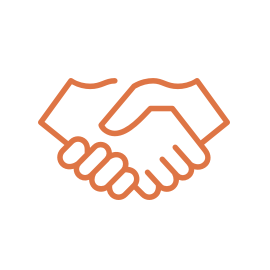FELLOWSHIP COMPONENTS
Learn more about the core program components of the DFI.
We believe the fundamental building blocks for exercising leadership include:
Resilience Listening
Emotional Intelligence
Conflict Management
Intentionality
Vulnerability
Empathy
Growth Mindset
Storytelling
Learning Leadership
We invite Fellows to think of the DFI as a low-stakes laboratory in which they have the opportunity to practice and to experiment in ways that stretch beyond their existing comfort zone.
No matter a Fellow’s career or professional path, we approach leadership development as a holistic, creative, and highly individualized process, with core competencies that all individuals must develop in order to be effective. Throughout the year, Fellows receive intensive coaching, receive ongoing feedback and skills assessment, and participate in a series of interactive skill-building workshops.
Leadership Development
The DFI Leadership Development Curriculum has been developed by the Dorot Staff over the course of several years and reflects the particular approach of the Fellowship. The curriculum focuses on three primary components — Emotional Intelligence, Skillful Communication, and Change Management — through group activities as well as individualized coaching.
Learning Community
The DFI Learning Community, composed of Fellows and educators, is a critical component of the Fellowship year. Together, the learning community shapes a dynamic curriculum that addresses issues related to leadership development, contemporary and historical issues in Israel, Jewish Wisdom, American and Diaspora Jewry, and more. The Learning Community is a key part of the DFI for good reason: we believe that education is often most effective when it is experiential and cooperative and when it happens amidst a diverse community of learners who take responsibility for their own learning as well as for the learning of others.
Fellows should expect the learning community to be a significant aspect of the time commitment of the Fellowship year, which includes in-person time together as well as preparatory time. Fellows should plan to meet as a cohort every Thursday, and one or two times per month every other Monday for the DFI’s Exploring Jewishness.
Community Days
Community Days are the primary mechanism for cohort development and maintenance. Unlike Seminars, which are topic-specific and Fellow-led, Community Days are largely Staff-led and provide a continuous home-base for the group to process and reflect, engage in additional learning relevant to the DFI’s educational goals and cultivate community. Examples of Community Day components include: Seminar feedback, facilitated group conversations and skill-building workshops (e.g. public speaking, non-violent communication, facilitation, etc.).
Seminars
At the core of the Learning Community is a Seminar series on topics central to Israeli society and politics in order to help Fellows understand the context in which they are living, as well as provide a lens through which to explore their relationship with both Israel and North America as Jewish leaders and change-makers. In coordination with DFI Staff, Fellows shape the curriculum, and are provided with a budget to bring in some of the top educators, journalists, activists, professors, and artists working in the region today. Access to and learning from these individuals is often a highlight for Fellows, who return to their communities with a sophisticated understanding of the socio-political reality in Israel. The first six seminar topics are chosen by the DFI Staff with the second half chosen by the cohort. All twelve seminars are facilitated by Fellows. Past seminars have included: Israel and the Region, Synagogue and State, The Place of the Military in Israeli Society, Palestinian Citizens of Israel, National Religious Zionism Inside and Outside ’67, and Haredim and Israeli Society.
Beit Midrash
A critical priority of the founding leadership of the DFI was the ability for all Jews to develop the skills to navigate the Jewish bookshelf, to have a relationship to Jewish texts and concepts both historical and current, and to understand the process of textual interpretation. As is the case in pluralistic settings, Fellows represent a wide range of Jewish and religious backgrounds, providing a rich environment with which to grapple with multiple ideas and concepts. From September through December, Fellows meet on a weekly basis for a “Beit Midrash” learning experience on critical issues facing the Jewish world and people. In the second half of the year, Fellows design a personal program of Jewish study and exploration that incorporates and responds to these historical and contemporary issues.
Additional Activities
The Fellowship includes additional learning opportunities throughout the year. In contrast to the Fellow-led experiences of Seminars and the Beit Midrash, these activities are created by DFI Staff and frequently involve travel throughout Israel and abroad. These activities include:

Two Orientations to start the year – one in the U.S. and one in Israel upon the Fellows’ arrival

Two Leadership Retreats – One in the U.S. in August and one in Israel in January

A week-long seminar in Budapest

A community Shabbaton in Israel

A Sikkum at the end of the year
Personal Learning Program
The DFI Personal Learning Program (PLP) is a self-directed, individualized curriculum comprised of components, common to all Fellows, but executed differently for each. Fellows are encouraged to think creatively and to stretch beyond their comfort zones. In partnership with the Staff, Fellows set goals and determine how to assess progress throughout the year, modifying and changing their PLP as they proceed, in order to maximize opportunity and follow their passions.
In the past, Fellows have volunteered in hospitals, environmental organizations, branches of government, domestic violence shelters, civil rights organizations, with youth at risk, with Shoah survivors and more. Fellows have learned with academics, rabbis, artists, and activists. They have created new initiatives, new programs and even new organizations. They have taught courses, hiked across the country, learned languages, created award-winning films and engaged in a variety of artistic endeavors. In short, Fellows are encouraged to learn and grow through a broad, and ever evolving, variety of activities.
In order to enhance their leadership potential, the DFI invites each Fellow to develop their Hebrew and Jewish literacy, their understanding of both the region and contemporary Jewry, and their leadership skills. All of these are manifest in the five areas of the PLP:
- Personal Development
- Language Acquisition
- Jewish Learning
- Israel Learning
- Volunteering
Personal Development
The Personal Development category located within the PLP is designed to develop and expand the toolbox of each Fellow, in order to empower them to become better versions of themselves, and to explore the competencies and habits of mind that will serve them best moving forward. Each Fellow will be in regular dialogue with Staff to identify their potential growth edges in this category, and ultimately to enhance the behaviors that will help them exercise leadership in the most effective, resilient and sustainable manner.
Language Acquisition
Hebrew
The Dorot Fellowship values Hebrew language as a key to one’s engagement in Israel and as a critical ingredient for Jewish leadership. Fellows who are not conversational Hebrew speakers are required to learn Hebrew. Fellows are encouraged to investigate a variety of ulpanim, private tutors and non-conventional means of learning Hebrew based upon their Hebrew literacy and their learning style.
Other Languages
Fellows who are fluent in Hebrew (or nearly so), can choose to learn Arabic, Russian or Amharic in addition to, or in place of, Hebrew to enrich their experience of Israel.
Jewish Learning
In addition to the Beit Midrash, Fellows must include Jewish learning as part of their Personal Learning Program. Jewish studies may be formal or informal, group or individual, traditional or alternative. A Fellow with extensive formal Jewish education may wish to explore new material or previously learned material through a new prism or in a new setting.
Israel Learning
In addition to Seminars, Fellows are encouraged to continue their exploration of the intricacies of Israeli society as part of their Personal Learning Program. The DFI encourages study in small groups, through tutorials, through engagement with creative arts and through encounters with people and places.
Volunteering
The Volunteering component is meant for Fellows to have hands-on, direct service experience, to contribute to local communities and to develop a sophisticated understanding of Israeli society. Examples of approved volunteer placements might include: soup kitchens, refugee centers, health care institutions, women’s shelters, community centers, schools and other environments where Fellows have opportunities to contribute to Israeli society. Volunteer opportunities must be approved by DFI Staff. Fellows are required to identify and negotiate their own volunteer placements.
PLP Expectations
It is expected that the Personal Learning Program will take a minimum of 25 hours per week, which includes preparation for PLP activities. For example, completing Hebrew homework may count towards those hours, in addition to actually attending Hebrew class. The PLP is developed in close connection with DFI Staff, who provides Fellows with suggestions and resources for people and organizations to work with throughout the year. Fellows are typically not permitted to engage in professional training as an element of the Personal Learning Program. (A lawyer may certainly take a course in Jewish law, though a mathematician may not take a seminar in mathematical modeling.) It is common for Fellows to use their professional skills in the context of their volunteer work, provided that the experience is consistent with the purposes of the DFI. Please note that Fellows are not permitted to receive remuneration for volunteering. Fellows may not participate in degree-seeking programs during the course of the Fellowship.
Sample Activities & Schedule
While many Fellows engage in a similar array of activities (language learning, volunteering, etc.), the shape of a Fellow’s schedule will vary from day-to-day, week-to-week, and even month-to-month. For example, a Fellow’s schedule in the second half of the year may look different from the first half of the year, depending on their shifting goals and time commitments. Fellows are likely to put emphasis on language acquisition at the beginning of the year as it enables greater access to opportunities and activities. Fellows balance their individual learning (PLP) with the communal learning and activities (planning and preparing for Seminars and Community Days, etc.).
Fellow Z
Below is what a weekly Personal Learning (PLP) schedule might look like for a Dorot Fellow, Fellow Z, once they have filled out their calendar with all five categories of the PLP, which for most Fellows usually happens by December. Prospective Fellows should note that every Thursday is reserved for DFI programming (Community Days and Seminars), and most Monday mornings from September to December are reserved for the Beit Midrash

* The Beit Midrash meets most Monday mornings from September to December in Jerusalem. Fellows may not have any PLP commitments during this time.
** The DFI cohort meets every Thursday. Fellows may not have any PLP commitments during this time.
Arc of the year
August
Orientation & Leadership Retreat I in the U.S.
Fellows arrive in Israel
September
Orientation in Israel
Beit Midrash (Mondays)
Community Days (Thursdays)
Fellows start their Personal Learning Program
October
Beit Midrash (Mondays)
Community Days & Seminars (Thursdays)
November
Beit Midrash (Mondays)
Community Days & Seminars (Thursdays)
December
Beit Midrash (Mondays)
Community Days & Seminars (Thursdays)
Budapest Seminar
Winter Break from group programming
January
Leadership Retreat II in Israel
Community Days & Seminars (Thursdays)
February
Community Days & Seminars (Thursdays)
March
Community Days & Seminars (Thursdays)
Community Shabbaton
April
Community Days & Seminars (Thursdays)
May
Community Days & Seminars (Thursdays)
June
Sikkum
